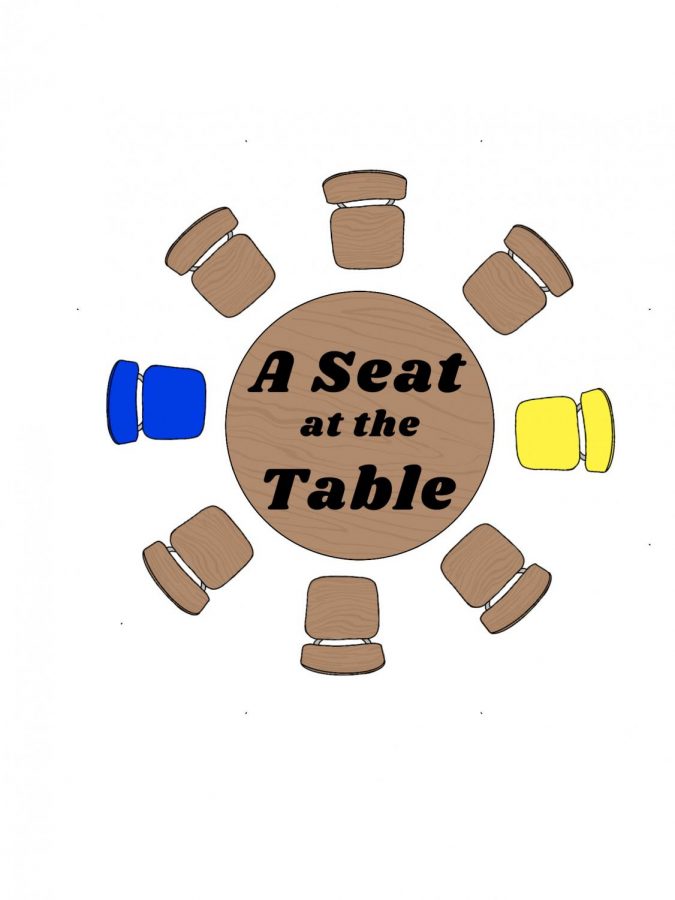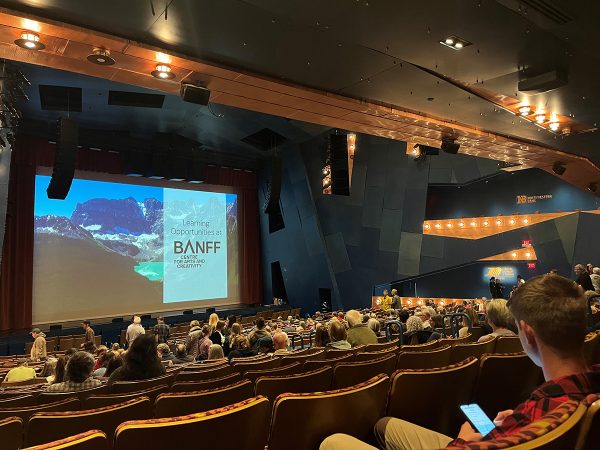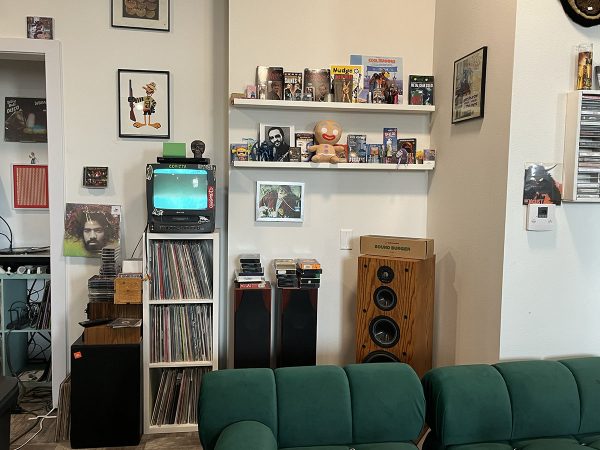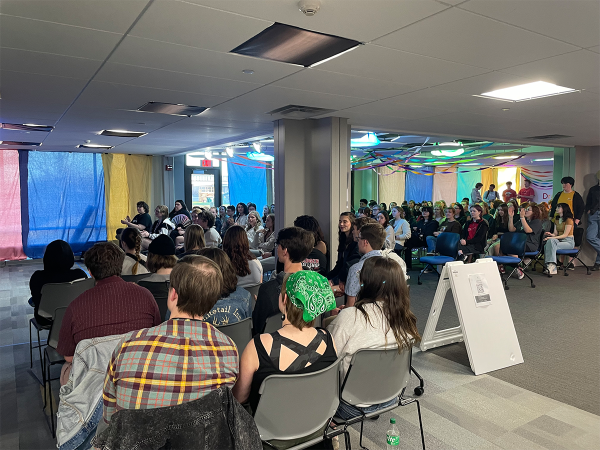A seat at the table
Locally run instagram account “woke.pdf” highlights Black History Month
Photo by Bethany Mennecke
Shirley Chisholm, the first Black woman elected to Congress, said, “If they don’t give you a seat at the table, bring in a folding chair.” Chisholm is one of the many featured Black activists on the popular Instagram page woke.pdf.
The midwest-based education page is run collaboratively by Sophia Flood Elyfai, Miranda Copeland and Lexie Kane. Flood Elyafi and Copeland are alumni of the UW-Eau Claire class of 2020 and Kane is a current fourth-year graphic communications and Spanish student.
The account was created in June of 2020, following the murder of George Floyd by the Minneapolis Police Department. Flood Elyafi said they spent most of the month of June preparing their content to begin posting in July.
Run collaboratively, the account provides information on current events and important Black figures and contributions; it also provides resources to aid individuals in their allyship journey to people of color. They focus their content toward people in Eau Claire or the surrounding communities to harbor greater support for racial justice.
“I felt like there was a gap in knowledge in this area because people were constantly reposting infographics, just small things that got the information across,” Flood Elyafi said. “I thought it would be more impactful if somebody from this area was also doing it.”
The account provides a link with various local organizations that work toward racial justice. They said one of their goals was to highlight some of the ways that people are able to become involved in their community.
“A lot of things happened around us in a short period of time, which I think radicalized a lot of people,” Kane said. “It’s just harder to get people engaged when they don’t see it, which is also part of the goal of us talking about it, is to get people to realize what’s actually going on.”
Copeland said she felt it was her role as a white person, who stands in a position of privilege, to take the initiative to educate herself on these topics.
“It is my responsibility to know these things and not just go to a member of that minority group to figure it out,” Copeland said.
Kane echoed this belief and referenced their conservative upbringing and community.
“I have to unlearn those things that I’ve been taught,” Kane said. “Nobody is going to do it for me. I have to put in the work to unlearn racist behaviors and ideas and be a better ally to those communities.”
Flood Elfayi has been posting daily during the month of February to commemorate Black History Month. She features profiles of Black individuals who have made monumental contributions to American society and culture.
Learning about lesser-known Black Americans is critical in gaining a greater understanding of the importance of Black History Month, Flood Elfayi said. She explained that Black History Month is often capitalized on, resulting in the same information being circulated by corporations and individuals alike.
“They choose the most digestible historical figures,” Flood Elfayi said. “People that have already been white-washed enough that the mass will just consume more information about them.”
They said that providing context to the Civil Rights Movement — emphasizing how recent it was — highlights a parallel with the modern-day Black Lives Matter movement.
“This is human rights, it’s not a political statement,” Copeland said.
Kane said this is simply about working toward equality in the United States.
“Working towards equality is just something everybody should do,” Kane said.
This month is a time to express gratitude for everything that Black people have given this country, they said. It is important to be celebrating Black excellence and to make a conscious effort to refocus societal standards so they are not centered on white people, Kane said.
A major facet of the account, in addition to fostering an educational space, is providing people with the resources to continue to do personal anti-racism work. All three of them emphasized how social justice needs to exist outside of activism-based social media bubbles.
“You can read a bunch of Instagram posts, but that doesn’t mean you’ve actually changed anything about yourself or your mindset,” Flood Elfayi said.
Flood Elfayi said that it is important to include their sources for each post in order for people to feel compelled to continue their research and pursue education on these topics outside of social media.
People need to put in a greater effort outside of interacting with, or running an educational account, for that work to really be impactful. Social media should be a “stepping stone” to furthering your self-education, they said.
Running this account has opened a door for her to be more outspoken in her personal life and has aided her in encouraging those around her to continue learning and making positive changes, Copeland said.
“I’m proud that we started a conversation and I hope that people who see our account are talking about it with their friends and family,” Kane said. “It’s really important to continue having a space to talk about what to do, I hope this page will continue to be a resource for people in the area who are sick of racism and want to make a positive change in the community.”
Flood Elfayi, Copeland and Kane said it is their hope that this account plants a seed in those who interact with it, to encourage them to work toward racial justice through self-education and community involvement.
Here are local organizations to get involved with:
- Urban Triage
- Black & Brown Womyn Power Coalition, Inc.
- Eau Claire Justice League
- Chippewa Valley ACLU
- EXPO Wisconsin
Gómez can be reached at [email protected].
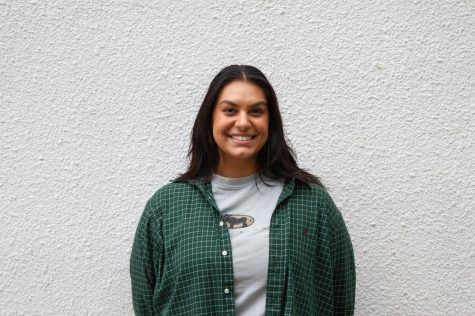
Rosa Gómez is a second-year political science and journalism student. This is her first semester on The Spectator staff. She enjoys rainy days, reading and all things social justice!

